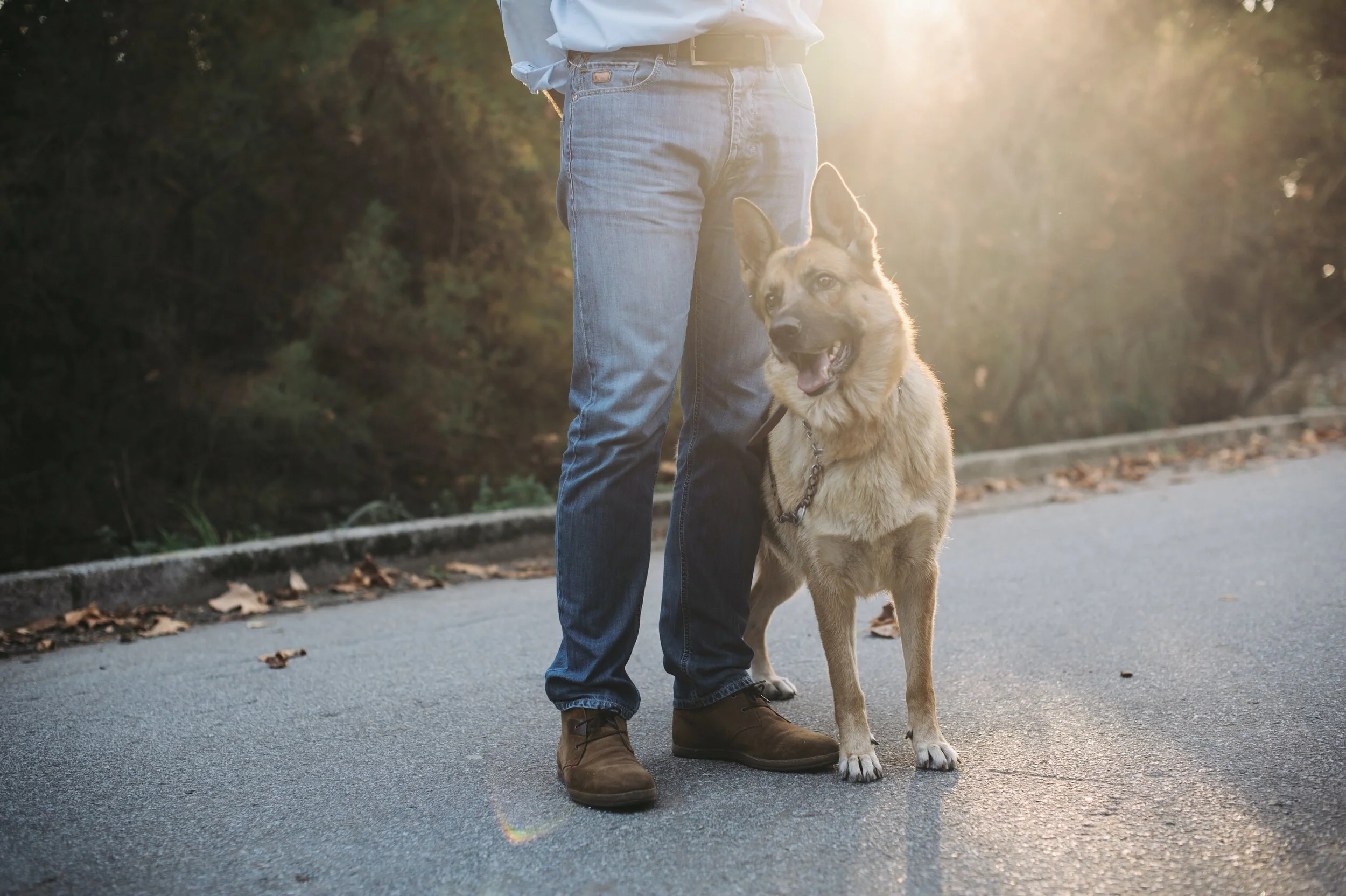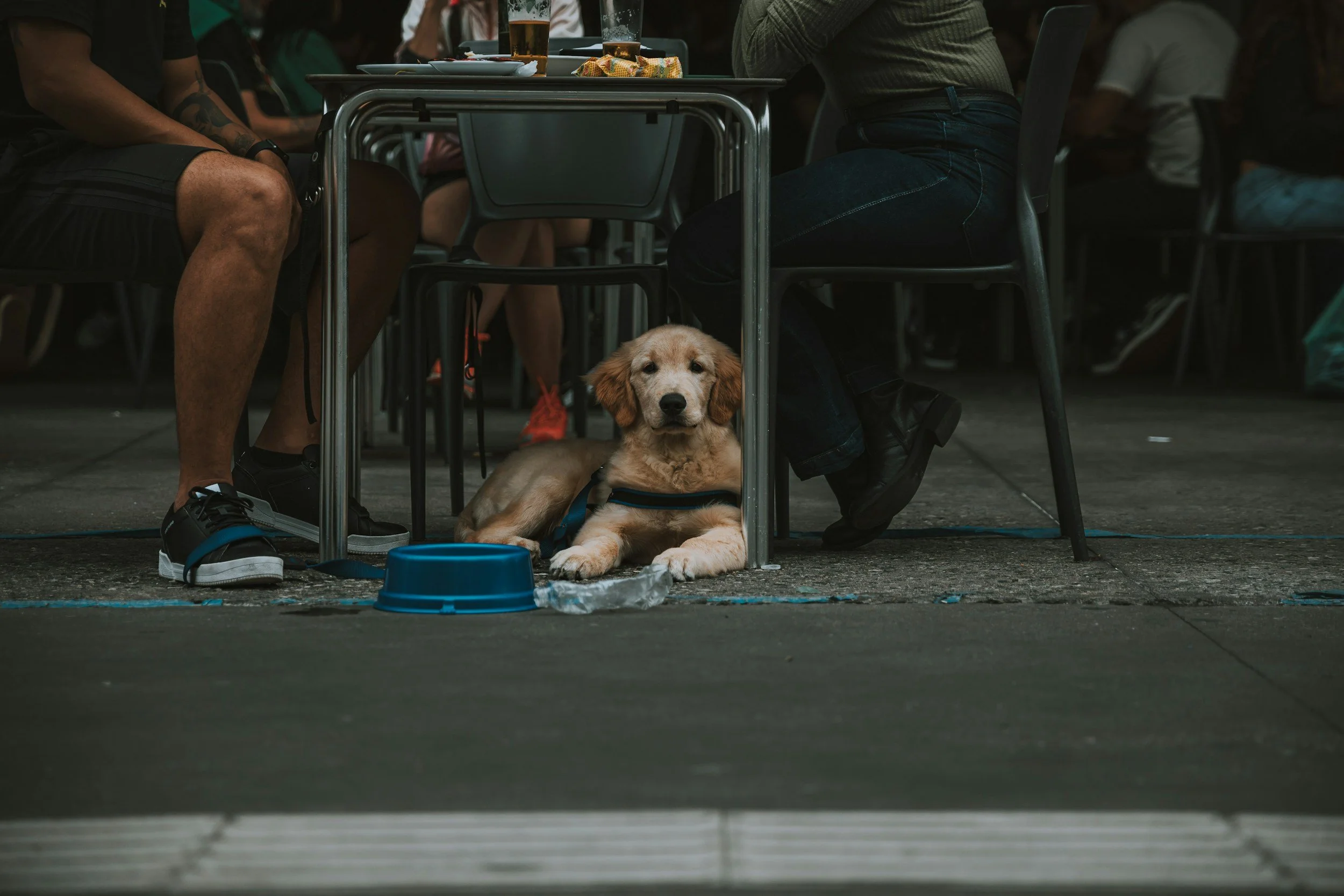
Class Descriptions
What should we enrol in?
Available Classes
Our club offers the following classes:
Most classes run over the school terms.
What to bring to classes
Lots of small, yummy treats for your dog (such as cheese or skinless sausage) that can be eaten quickly without the dog choking on them - excited dogs often forget to chew! Possyum is a great choice and is available as a dog roll at your supermarket. Aim for small pieces - treat quantity is more important to your dog than treat size.
We recommend you do not give your dog a full dinner before class. They will work harder for their treats and they will not have to do exercise on a full stomach which can cause medical problems.
Suitable attire for training - clothing you don't mind getting dirty and closed shoes.
A tug type toy for the dog (NOT squeaky please as this distracts other peoples' dogs).
A suitable leash and collar (registration tag attached)- NO Choker chains or retractable leads.
Toilet bags for cleaning up after your dog.
Engagement
Engagement classes are the first step in training your dog, focusing on fun and engagement. During the course our trainers will introduce you to methods including games to encourage your dog to build connections and focus on you. The course is reward based and will cover markers and timing as well as introducing shaping.
Skills for life
Skills For Life SFL 1 and 2 serve to build upon our engagement class and bring further skills that you and your dog can use for everyday life.
Want that reliable dog who just chills at your feet whilst you visit the cafe or who you can still pay attention to you around the distraction of other stimulus. Who can greet strangers politely and not pull on leash These are the classes for you.
These classes run concurrently seeing handler and dog attending multiple terms and progress through at the pace best suited to the pair. SFL gives you all the tools needed for that well behaved pet dog or a firm foundation into our other codes here at club.
Foundation Dog Sports
Our Foundation Dog Sports (FDS) course is designed to give dogs and their handlers a strong, positive start before entering code-specific foundation classes such as Agility, Obedience, Rally-O, and other dog sports.
This 6-week course focuses on how dogs learn, building confidence, resilience, and engagement through modern reward-based training. Using shaping, play, and food motivation, dogs are taught to problem-solve, offer behaviours, and work independently of the handler — skills that are essential across all dog sports.
The FDS course is suitable for:
New handlers wanting strong foundations
Experienced handlers starting young dogs
Dogs progressing from basic training (e.g. 101/102)
Classes are run in small groups to ensure quality instruction and individual support. Exercises include shaping with objects (box, mat, perch), recalls, loose lead walking, confidence and body-awareness work, and obstacle circuits. These foundation skills translate directly into improved performance and success in later sport-specific training.
Clubs that run similar programmes have found dogs are more successful and confident when they move into discipline-specific foundation classes after completing a course like FDS. Course format: 6-week block Small class size Reward-based, dog-friendly training Focus on engagement, confidence, and learning skills This course sets both dogs and handlers up for long-term success across a wide range of dog sports.
Canine Good Citizen
This has 4 levels - Foundation, Bronze, Silver and Gold.
This is a nationally recognised assessment by DogsNZ and is entered into a National Database. The requirement to enter the above CGC classes is passing Domestic Dog 102 or equivalent*.
The purpose of the CGC programme is to ensure that our favourite companion, the dog, can be a respected member of the community because it is trained to behave with good manners in the home, in public and in the presence of other dogs.
CGC training is fun and useful. To pass the levels, assessments take place by an official Dogs NZ Assessor. These are not a competition but show the dog’s willingness to obey instructions given by the handler, demonstrate basic training and consistently display good temperament. Completing the assessments is not a requirement unless the aim is to achieve the higher levels. You must pass each level before moving on to the next level.
*email rotoruadogtraining@gmail.com if you would like to enrol but have not completed Domestic Dog 102.
Things you will be working on are
Appearance and Grooming
Food manners
Accepting Friendly Strangers
Walking in a controlled manner with distractions and through people
Stay tied up with owner both in sight and out of sight
Recall to the handler
Control around other dogs
Getting into and out of cars
Foundation/Bronze is the next step up from Basic, with more advanced exercises to build up your partnership with your dog including going out into the community.
Silver/Gold. These classes follow on from CGC Foundation/Bronze as you work your way up the ladder of awards.
You must have passed the assessment for Canine Good Citizen Foundation and Bronze to sit Silver and Gold.
Rally-O
Rally-O is a sport which contains elements of obedience and agility. The course has numbered stations with a different exercise performed at each station. Courses can include cones and low jumps as well as turns, sits, downs and recalls.
All dogs commence at Novice level (worked on-lead), and progress to Advanced and then Excellent (both off-lead); with new exercises introduced at each level. Rally-O trials are held across the country for handlers/dogs wishing to gain Rally-O titles.
Please see below for the pre-requisites to enrol in a Rally-O class.
Introduction to Rally-O
Prerequisites for entry to course – Dog has completed a Domestic Dog 102 or equivalent class*, and
Is heeling without requiring undue restraint or continuous baiting
Dog can Sit, Down, Wait, on command
Dog has reasonable level of focus on handler
No excessive barking or jumping up
*email rotoruadogtraining@gmail.com if you would like to enrol but have not completed Domestic Dog 102.
What is covered in this course
Rally-O etiquette: handlers, dogs (including fouling, interactions)
Walking the course (handler), how to start and finish the course (dog and handler)
Correct position of the dog when heeling
Appropriate use of rewards whilst in training
Commands and hand signals
Introduction to signs (currently 35) in the DNZ schedule for Novice, including
Exercises with cones (weaves and spirals)
Exercises requiring a Call Front, Finish Right or Left
Exercises with a Sit or Down requiring Handler to walk around the dog
Fast and Slow heeling
Rally-O for Competition
Prerequisites for entry to Novice – Dog has completed Introduction to Rally-O and/or
Is familiar with and can perform most Novice Rally-O signs, including these elements
Call front
Finish Right and Finish Left
Sit and Down with handler walk around
Is currently competing in Rally-O or Obedience
Prerequisites for entry to Advanced/Excellent
Dog holds DNZ Rally Novice or Advanced title
Dog has completed the above Novice course to a satisfactory level
What is covered in this course
Techniques for best performance of signs at the dog’s appropriate level
Optimising the Walk Through
Competition knowledge – how a Rally-O trial is run – joining Dogs NZ – entering a trial etc.
Agility
A pre-requisite of attending agility classes is that you are willing to help out at agility events that are run by Rotorua Dog Training Club.
Agility is a fun activity using a range of agility equipment - jumps, tunnels, weave poles, A-frame, seesaw, and dog walks. Agility is great exercise for dog and handler alike, as they learn skilled control to negotiate a course containing a variety of obstacles. All sizes of dogs are catered for.
Pre-Agility Class
If you have never done agility before then this is the class for you. You must have completed and passed a Domestic Dog 102* course and have a solid and reliable recall to enrol in this class. This class introduces the equipment used in agility, and basic handling.
*email rotoruadogtraining@gmail.com if you would like to enrol but have not completed Domestic Dog 102.
Foundation
You must have graduated from the Pre-Agility class before moving into Foundation.
You must have a good recall and be able to work with your dog off-lead to attend this class.
Dogs must be over 12 months old and be non-aggressive. Agility is a physically demanding sport, so dogs must not be overweight. Any physical conditions/injuries need to be made known to an instructor for individual assessment, and a Vet’s certificate may be requested.
This class continues from Pre-Agility, to graduate from this class participants must be able to run an elementary style course.
Starters
You must have graduated from Agility Foundation to attend these classes.
The aim of this course is to start participants in competitions, to improve handling, and learn weaves. There will be an introduction into contact equipment.
To graduate from this class participants must be able to navigate a starters-level course including a 12 pole weave.
Agility competitions are held on lots of weekends throughout the year where you can compete with your dog against others at your level.
Novice
This class builds further on skills learned in Starters, with more complex handling introduced, along with contact gear (dog walk/ A-frame)
To graduate from this class participants must be able to navigate a novice-level course, including weaves and contact gear.
Senior
This class is aimed at those competing at an intermediate level or higher. Advanced handling skills and improving speed and technique for experienced handlers.
Competitive Obedience
For those whose goal is to compete at Obedience Competitions.
For all levels from Elementary through to Test C
It’s all rewards-based training, and it can have great benefits in increasing your dog’s bond with you and learning to work as a team. Competition training is like brain-gym for dogs (and handlers!). It’s especially good for very high drive dogs and working breeds, who can never be tired out with exercise… but five minutes of brain work will wear them out. It also helps with their impulse control in daily life, so they can develop into a pet that is a dream to have around the house.
Owners sometimes think, ‘my dog needs to be better behaved, or older, or have gone through all the domestic classes’. Not at all - starting sooner is better. Competition heeling is a completely different skill to loose-lead walking. We start training the foundations of that very early on, as puppies. Too old? Rescue dog? Too crazy? All types of dogs can succeed in obedience. It doesn’t have to take a lot of time; short bursts of training are always better. You can train in the TV ads (or pause Netflix). It’s all about increasing and perfecting skills, and making it fun for you and your dog.
Flygility for beginners
Flygility is an exciting sport that mixes elements of agility and flyball. The dog is sent to fetch a ball from a flyball box and returns the ball to the handler. Courses can be up to 30m from start line to the box, and use agility obstacles like jumps and tunnels. More advanced courses can incorporate weaves.
In competition, two dogs race each other down a 30meter course, navigate the equipment, retrieve a ball and return, as fast as they can!
If your dog loves a ball, how about giving flygility a go!
Dogs must be over 12 months of age and completed our ‘Pre-Agility’ course (see description above)
